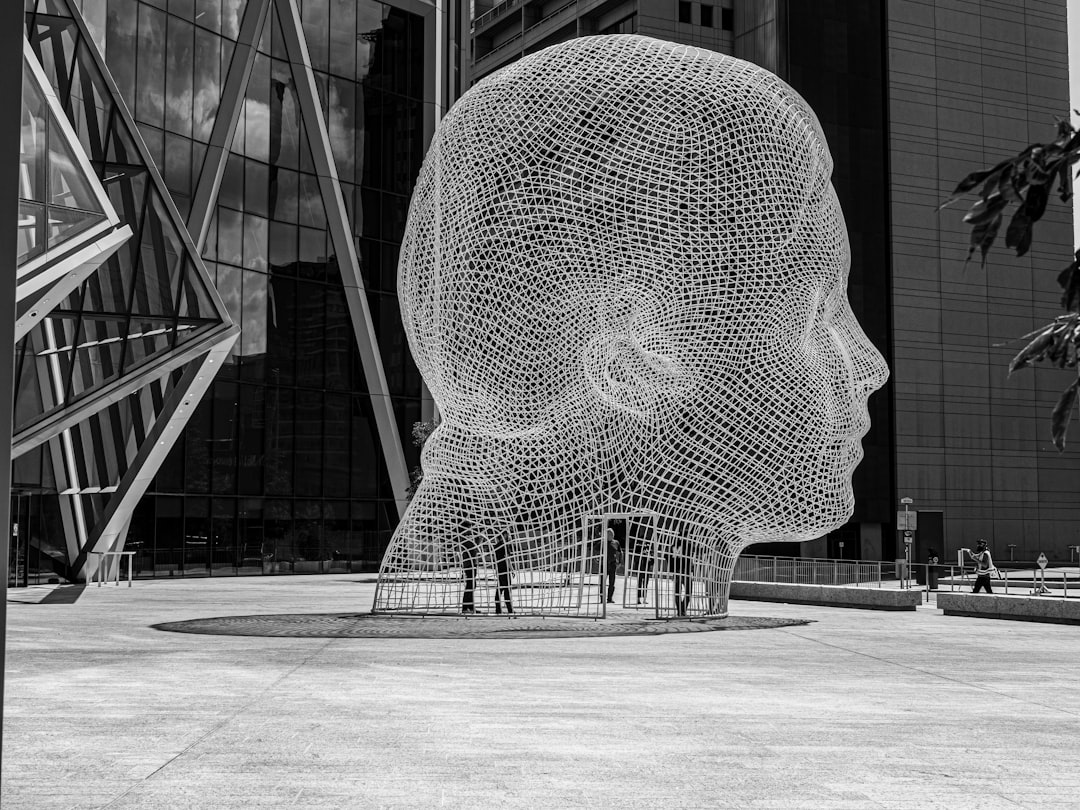Reconstructive memory is a fascinating concept that delves into how you remember past events. Unlike a video recording that captures every detail, your memory is more like a tapestry woven from various threads of experience, perception, and emotion. When you recall an event, you don’t simply retrieve a static image; instead, you reconstruct it based on the information stored in your brain.
This process is influenced by numerous factors, including your beliefs, knowledge, and the context in which the memory is recalled. Understanding this concept can help you appreciate the fluid nature of memory and how it shapes your identity and experiences. As you navigate through life, your memories are not just passive records; they are active constructions that can change over time.
Each time you recall a memory, you may inadvertently alter it, adding new details or omitting others based on your current understanding or emotional state. This malleability of memory is what makes reconstructive memory both intriguing and complex. It highlights the interplay between your past experiences and present perceptions, emphasizing that memory is not merely about retention but also about interpretation and meaning-making.
Key Takeaways
- Reconstructive memory is the process of recalling information from memory and filling in the gaps with logical or plausible details.
- Perception plays a crucial role in memory reconstruction, as our interpretation of events can influence how we remember them.
- Emotions can significantly impact memory reconstruction, as strong emotions can enhance the vividness and accuracy of memories.
- Memory distortion is common, and our memories can be influenced by external factors, leading to inaccuracies in our recollections.
- Schemas, or mental frameworks, can shape how we reconstruct memories, leading to biases and errors in our recollection of events.
The Role of Perception in Memory Reconstruction
Perception plays a crucial role in how you reconstruct memories. Your senses gather information from the environment, and this data is processed through your cognitive filters, which are shaped by your experiences, beliefs, and expectations. When you recall a memory, you are not just accessing a stored image; you are interpreting it through the lens of your current perception.
This means that two people can witness the same event but remember it differently based on their unique perspectives and interpretations. Consider a simple example: if you attended a concert with friends, your recollection of the event may be influenced by your mood at the time, the conversations you had, or even the music itself. If you were feeling particularly joyful, you might remember the concert as an exhilarating experience filled with laughter and connection.
Conversely, if you were feeling anxious or distracted, your memory might focus on the discomfort of the crowd or the noise level. This illustrates how perception not only shapes your immediate experience but also colors your memories long after the event has passed.
The Influence of Emotions on Memory Reconstruction

Emotions are powerful catalysts in the process of memory reconstruction. When you experience strong feelings during an event, those emotions can enhance the vividness and detail of your memories. For instance, if you experienced joy during a family celebration, that happiness may lead to a more robust and detailed recollection of the day.
Conversely, negative emotions such as fear or sadness can also leave a lasting imprint on your memories, making them more salient and easier to recall. However, emotions can also distort memories. When you are overwhelmed by strong feelings, your brain may prioritize certain aspects of an event while neglecting others.
This selective attention can lead to a skewed version of reality, where some details are exaggerated while others fade away. For example, if you had a traumatic experience, the fear associated with that event might overshadow other elements, leading to a memory that feels more intense than it actually was.
Memory Distortion and Reconstruction
| Study | Findings |
|---|---|
| Loftus and Palmer (1974) | Found that the wording of a question can influence the accuracy of eyewitness memory. |
| Bartlett (1932) | Proposed the concept of reconstructive memory, where memories are not exact replicas of the original event but are reconstructed based on schemas and past experiences. |
| False Memory Syndrome | Refers to the phenomenon where individuals develop vivid false memories of events that never occurred, often as a result of suggestion or leading questions. |
Memory distortion is an inevitable part of reconstructive memory. As you recall past events, your brain may inadvertently alter details or fill in gaps with information that seems plausible but is not accurate. This phenomenon can occur for various reasons, including the passage of time, new experiences that reshape your understanding, or even external influences such as conversations with others.
The result is a reconstructed memory that may differ significantly from what actually occurred. One common example of memory distortion is the misinformation effect, where exposure to misleading information after an event can alter your recollection of it. If someone tells you a different version of an event you witnessed, your brain may integrate that new information into your existing memory, leading to confusion about what really happened.
This highlights the importance of being mindful about how memories are formed and reconstructed, as well as recognizing that your recollections may not always be reliable.
The Impact of Schemas on Memory Reconstruction
Schemas are cognitive frameworks that help you organize and interpret information based on your prior knowledge and experiences. These mental structures play a significant role in memory reconstruction by influencing how you encode and retrieve memories. When you encounter new information or experiences, your brain automatically references existing schemas to make sense of what you’re perceiving.
This can streamline the process of understanding but can also lead to biases in how memories are formed. For instance, if you have a schema for what a birthday party typically entails—cake, balloons, friends—you may unconsciously fill in gaps in your memory of a specific birthday celebration based on this framework. If certain details were absent from the actual event but fit within your schema, you might mistakenly incorporate them into your recollection.
Factors That Affect Memory Reconstruction

Several factors can influence how you reconstruct memories, ranging from individual differences to environmental contexts. Your age, cognitive abilities, and even personality traits can shape how effectively you encode and retrieve memories. For example, younger individuals may have more flexible cognitive frameworks that allow for easier integration of new information into existing memories.
In contrast, older adults might rely more heavily on established schemas, which could lead to more rigid interpretations of past events. Environmental factors also play a significant role in memory reconstruction. The context in which you recall a memory—such as the physical location or social setting—can trigger specific associations that enhance or hinder your recollection.
For instance, returning to a childhood home may evoke vivid memories tied to that space, while being in an unfamiliar environment might make it harder to access certain recollections. Recognizing these factors can empower you to create conditions conducive to better memory retrieval.
The Role of Context in Memory Reconstruction
Context is an essential element in the process of memory reconstruction. The circumstances surrounding an event—such as the time of day, location, and social dynamics—can significantly influence how you remember it later on. Contextual cues serve as anchors for your memories; when you encounter similar cues in the future, they can trigger related recollections.
This phenomenon is known as context-dependent memory. For example, if you learned something while studying in a particular café, returning to that café might help jog your memory about the material studied there. Conversely, if you’re trying to recall something in a different setting—like at home instead of the café—you might struggle to access those memories as easily.
Understanding the importance of context can help you create environments that facilitate better recall when needed.
Memory Reconstruction and Eyewitness Testimony
The implications of reconstructive memory extend beyond personal experiences; they also have significant consequences in legal contexts, particularly regarding eyewitness testimony. When individuals witness a crime or event and later attempt to recall it in court, their memories may be influenced by various factors such as stress levels during the incident or subsequent discussions with others about what happened. This raises concerns about the reliability of eyewitness accounts.
Research has shown that eyewitnesses can be susceptible to memory distortions due to leading questions or suggestive comments from law enforcement or attorneys. As a result, their testimonies may reflect reconstructed memories rather than accurate recollections of events. This highlights the need for caution when relying on eyewitness testimony in legal proceedings and underscores the importance of understanding how reconstructive memory operates.
The Power of Suggestion in Memory Reconstruction
Suggestion plays a powerful role in shaping how you reconstruct memories. When exposed to leading questions or external suggestions after an event has occurred, your brain may inadvertently incorporate this new information into your existing memories. This phenomenon is often referred to as “memory conformity,” where individuals adjust their recollections based on what others say or imply.
For instance, if someone suggests that they saw a specific detail during an event—like a red car speeding away—you might later recall seeing that red car even if it wasn’t present at all. This highlights how easily memories can be influenced by external sources and emphasizes the importance of being critical about the information you receive after an event has taken place.
Memory Reconstruction in Therapy and Trauma
In therapeutic settings, understanding reconstructive memory is crucial for addressing trauma and facilitating healing. Many individuals who have experienced traumatic events may struggle with fragmented or distorted memories related to those experiences. Therapists often work with clients to help them reconstruct these memories in a safe environment, allowing for processing and integration.
Through techniques such as guided imagery or narrative therapy, individuals can explore their memories while being supported by a professional who understands the complexities of reconstructive memory. This process can help clients gain insight into their experiences and develop healthier coping mechanisms for dealing with trauma-related symptoms.
Enhancing Memory Reconstruction for Personal Growth
You have the power to enhance your memory reconstruction for personal growth by adopting strategies that promote accurate recall and deeper understanding of your experiences. One effective approach is journaling; writing about significant events allows you to reflect on them more thoroughly and solidify those memories in your mind. By articulating your thoughts and feelings surrounding an experience, you create a richer narrative that can aid in future recollections.
Additionally, engaging in mindfulness practices can help improve your awareness of present moments while also fostering better connections to past experiences. By cultivating mindfulness, you become more attuned to your thoughts and emotions as they arise, which can enhance your ability to reconstruct memories with greater clarity and accuracy over time. In conclusion, understanding reconstructive memory offers valuable insights into how you perceive and recall past events.
By recognizing the roles of perception, emotion, context, and suggestion in shaping your memories, you can navigate your recollections with greater awareness and intention. Whether you’re seeking personal growth or working through trauma in therapy, embracing the complexities of memory reconstruction can empower you to create a more nuanced understanding of yourself and your experiences.
Reconstructive memory is a fascinating concept in cognitive psychology that explores how memories are not simply retrieved but actively reconstructed, often influenced by various factors such as emotions, beliefs, and social contexts. A related article that delves into the intricacies of memory and cognition can be found on HeyDidYouKnowThis. This article provides insights into how our understanding of memory has evolved and the implications it has for both everyday life and psychological research. For more information, you can read the full article by visiting HeyDidYouKnowThis.
WATCH THIS! Don’t Believe Everything You Think — Your Brain Is A Master Trickster!
FAQs
What is reconstructive memory?
Reconstructive memory is the process of recollecting past events and experiences, where memories may be altered, revised, or influenced by new information or experiences.
How does reconstructive memory work?
Reconstructive memory works by filling in gaps in our memory with logical or plausible information, and can be influenced by our beliefs, expectations, and experiences.
What are the factors that can influence reconstructive memory?
Factors that can influence reconstructive memory include the passage of time, leading questions, suggestions, and the incorporation of new information or experiences.
What are the implications of reconstructive memory in everyday life?
Reconstructive memory can have implications in legal settings, eyewitness testimony, and the accuracy of personal recollections. It can also impact how we perceive and remember events in our daily lives.
How can we improve the accuracy of our memories?
Improving the accuracy of our memories can be achieved by being mindful of the potential for reconstructive memory, seeking out multiple sources of information, and being aware of the influence of external factors on our recollections.
